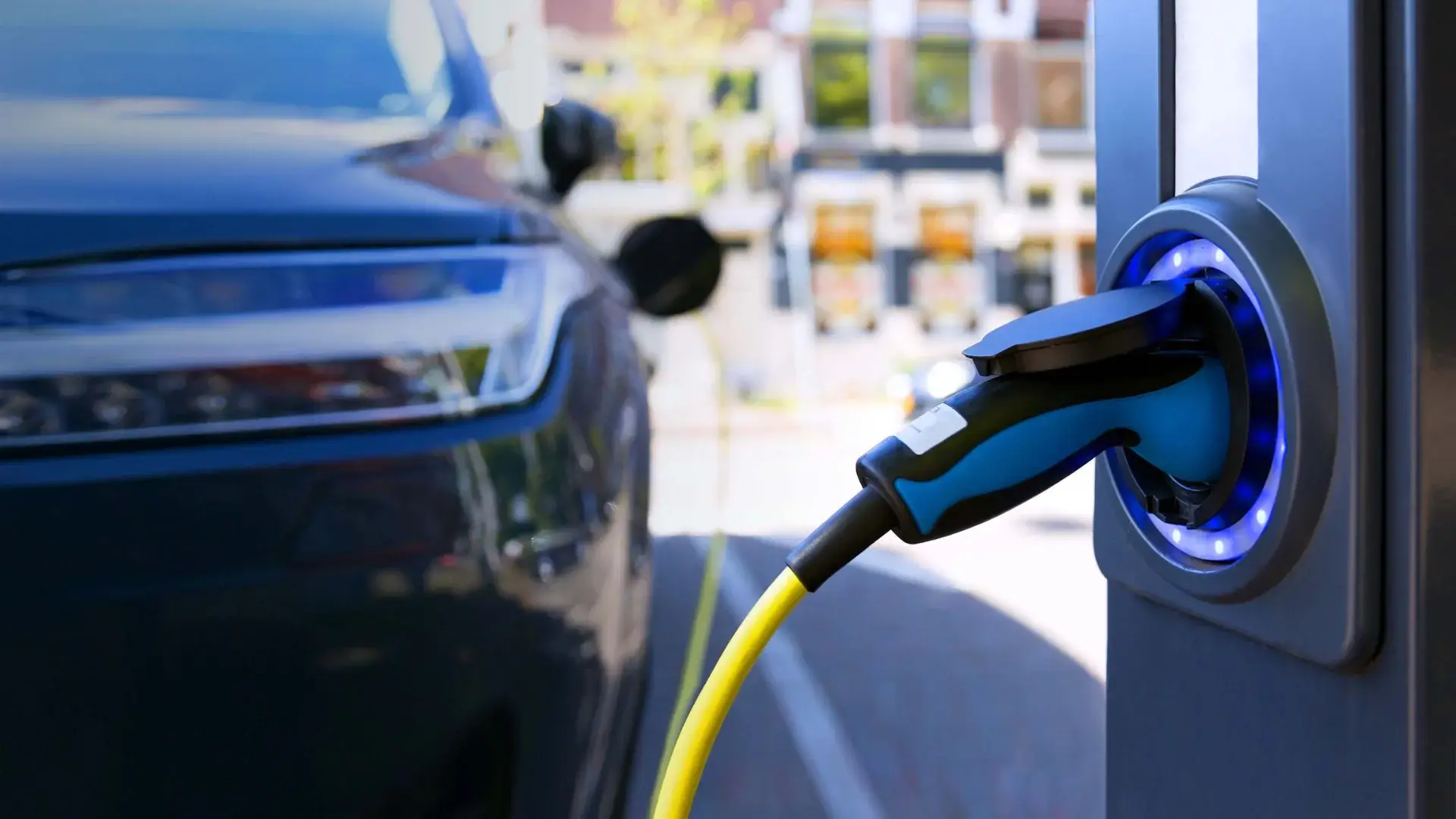Monday to Friday
9h 12h30 - 14h 19h
Financial aid: an essential lever for companies to purchase an electric car
In 2024, French companies will benefit from a number of financial incentives to support the purchase or leasing of electric vehicles. The aim is to reduce thecarbon footprint of company fleets, while facilitating access to electric mobility.
The main financial assistance available
- Visit environmental bonus :
- This bonus is capped at 4 000 € for companies purchasing or leasing new electric vehicles.
- The bonus can be increased by 1 000 € for companies located in the French overseas departments and territories (DOM-TOM).
- Visit conversion premium :
- Companies can obtain up to 5 000 € for the purchase of a new or used electric vehicle by scrapping an old internal combustion vehicle.
- An additional premium of 1 000 € is granted to companies located in an EPZ. This premium can be as high as 3 000 € if similar aid is granted by a local authority.
- Exemption from corporate vehicle tax (TVS) :
- Companies are exempt from TVS for all electric vehicles they own. This represents substantial savings, especially for large fleets.
Conditions for receiving aid
To qualify, companies must meet certain criteria. The vehicle must be :
- new,
- registered in France,
- and run exclusively on electricity.
In addition, the company may not resell or transfer the vehicle for one year, or until it has travelled at least 6,000 km. The company must also have a place of business in France, and the scrapped vehicle must meet the specific conditions set out in the "prime à la conversion" regulations.
Why are these aids so crucial?
These devices make it possible to :
- reduce acquisition costs,
- optimize operating costs,
- and encourage the ecological transition
Read our article about :
Thanks to available subsidies such as the bonus écologique and the prime à la conversion, as well as tax exemptions, companies have a unique opportunity to reduce their costs while adopting greener mobility. These aids facilitate the transition to electric fleets, while meeting the growing demands of environmental responsibility.
Mistakes to avoid when leasing electric cars for your company
The electric car leasing is a financially advantageous option for companies, but it's important to be aware of the potential pitfalls. Here are the most common mistakes to avoid when taking out a leasing contract.
Underestimating mileage
Leasing contracts stipulate an annual mileage limit. If this limit is exceeded, penalties may apply, often charged on a per-kilometer basis. So it's essential to assess your mileage requirements correctly from the outset.
Ignore early termination fees
Terminating a leasing contract early can result in very high termination charges. These costs are calculated on the basis of the remaining term and the conditions of the vehicle. So it's vital to be aware of these conditions before signing.
Do not include maintenance costs
Although electric vehicles require less maintenance than internal combustion vehicles, servicing is always necessary. Failure to include these costs in your contract may result in unforeseen additional costs.
Neglecting return conditions
The conditions for returning vehicles at the end of the contract are strict. The slightest damage can result in substantial repair costs. To avoid any surprises, we recommend that you make a precise inventory of the vehicle on arrival and on return.
Add too many costly options
Adding options such as maintenance or extended warranty may seem worthwhile, but some options may turn out to be more expensive than anticipated. It's important to assess whether these services are really necessary for your business.
Don't compare offers
Leasing offers vary considerably from one provider to another. Costs, services included and conditions may differ. It's essential to compare several quotes to find the best deal for your needs.
Leasing is a flexible and financially attractive solution for businesses, but to take full advantage of it, it's essential to avoid these common mistakes. For further details and information, please read our full article, which will guide you through the best leasing contract for your fleet of electric vehicles.
Read our article about :
The hidden costs of leasing electric cars
The leasing of electric cars, whether as a rental with purchase option (LOA) or long-term leasing (LLD), is attracting more and more companies and individuals. However, behind the attractive monthly payments often lie additional costs that it's crucial to be aware of before signing a contract.
First of all, although the monthly payments may seem low, the disposal fee is a cost that is often overlooked. These costs are invoiced at the end of the contract if you choose not to purchase the vehicle under a LOA, or if you return the vehicle under a LLD. They cover inspections, vehicle reconditioning and administrative formalities. These costs can vary considerably, between €150 and €500 depending on the service provider.
In addition to these costs, you need to take into account transfer fees, which apply if you don't collect the vehicle directly from the manufacturer. These costs can be as high as €500, depending on the distance and the service provider.
Secondly, comprehensive insurance is generally compulsory. This costs an average of €822 per year in France. Some leasing companies offer "all-inclusive" contracts that include insurance, but this significantly increases the monthly payment. It's important to compare offers carefully to avoid unnecessary costs.
Another often overlooked cost is the cost of recharging. Although these costs are not directly linked to the lease, they are borne by the lessee and depend on fluctuating electricity prices. These costs vary according to the type of charging station used, making the overall leasing budget more difficult to predict.
Finally, the ecological bonus, worth up to €5,000 in 2024, can help to reduce initial costs, provided the leasing contract lasts at least 24 months. However, it is important to check that the vehicles chosen meet the eligibility criteria for this assistance.
Read our article about :
While electric car leasing offers flexibility and simplified management, it's essential to anticipate hidden costs to avoid financial surprises. For more details on these costs and how to minimize them, read our full article on the subject.
Leasing an electric car with a purchase option
The LOA is an increasingly popular financing solution for acquiring an electric vehicle. This contract allows the user to lease a vehicle for a fixed period, generally between 24 and 60 months, with the option of buying it at the end of the contract. This option offers both flexibility and budget control.
When choosing a LOA, the lessee pays monthly rents that are often lower than those of a conventional loan. The amount of these rents is calculated according to the duration of the contract, the annual mileage, and the initial price of the vehicle. At the start of the contract, a first rent is often required, representing between 0% and 30% of the vehicle price. A security deposit is also available, which can be deducted from the final purchase price.
One of the main advantages of the LOA is its flexibility. At the end of the contract, you have the choice of buying the vehicle or returning it, without having to worry about resale or discounting. This allows you to renew your vehicle on a regular basis and take advantage of the latest technological innovations, which is particularly interesting for electric cars, which are constantly evolving.
However, the LOA also includes constraints. For example, the contract often imposes mileage limits. Exceeding these limits can lead to high additional costs. What's more, if you choose to return the vehicle, it must be in perfect condition, or you'll have to pay a reconditioning fee. Finally, the overall cost of a LOA can be higher than a traditional loan, especially if the purchase option is exercised.
Key points to check before taking out an LOA :
- mileageTo avoid additional costs, choose a contract that suits your driving habits.
- insurance and maintenanceThese services can be offered as optional extras, but they add to the overall cost.
In short, the LOA offers a flexible, controlled financing option for electric cars, ideal for those who want to test a vehicle before buying it, or simply renew their fleet on a regular basis.
Read our article about :
Long-term leasing for electric cars
Leasing is a fast-growing financing solution for electric cars, popular with private individuals, businesses and even the self-employed. This financing method involves leasing a vehicle over a defined period, generally between 24 and 60 months, with no purchase option at the end of the contract.
Unlike the LOA, where a buy-back is possible, the LLD allows you to return the vehicle at the end of the contract without worrying about resale or depreciation.
One of the main advantages of long-term leasing is its ability to budget control. Monthly rentals are fixed and often include services such as maintenance, insurance and sometimes even assistance. This formula enables you to drive a new car, while avoiding the financial constraints associated with buying or owning a vehicle.
In terms of costs, several factors influence the amount of monthly payments:
- The initial price of the vehiclethe rental period and the chosen mileage.
- Services included in the contract, such as maintenance and repairs.
Long-term leasing contracts are attractive, with offers of less than €200 per month for models such as the Dacia Spring or the Renault Zoé e-Techalthough these rates often include a higher first rental charge. For example, the Renault Zoé can be leased for €169 per month over 36 months, with an initial rental charge of €9,500.
In addition to the financial advantages, leasing allows you to change vehicles regularly. At the end of the contract, you can simply return the vehicle and opt for a newer model, an advantage for fans of electric cars, whose technologies are evolving rapidly.
A few points to remember before taking out a long-term leasing contract:
- Insurance, maintenance and assistance may be included in the monthly payment, but it's important to check the exact conditions to avoid unpleasant surprises.
- Exceeding the mileage limit may result in additional costs. Make sure you choose a contract that suits your needs.
In short, leasing is an attractive option for those who want access to an electric car without the responsibilities of ownership. This type of financing offers flexibility, budget control and the ability to drive regularly with recent vehicles while benefiting from the latest innovations.
Read our article about :
Electric car leasing: LOA or LLD?
Leasing has become an increasingly popular solution for financing the acquisition of an electric car. There are two types of contract: leasing with an option to purchase (LOA) and long-term leasing (LLD). Both formulas have their own specificities, each offering advantages according to the user's needs.
The LOA allows you to lease a vehicle for a defined period (generally between 2 and 5 years), with the option of buying it back at the end of the contract. This option is ideal for those wishing to test-drive a vehicle before deciding whether to become an owner. On the other hand, it often involves an initial deposit and monthly payments calculated according to the length of the contract and mileage.
Leasing, on the other hand, does not allow you to buy the vehicle at the end of the contract. It is designed for users who prefer to change cars regularly without worrying about resale. In general, leasing includes maintenance, assistance and other services in the monthly payments, offering greater control over the overall budget..
Read our article about :
Conclusion
Electric car leasing, whether as a LOA or LLDrepresents an attractive opportunity for companies and individuals wishing to adopt more sustainable mobility while keeping costs under control. These financing options enable you to benefit from the latest vehicles, often accompanied by services such as maintenance and assistance, while offering flexibility and financial security. By choosing the contract that's right for you, you're not only optimizing your expenses, you're also playing an active part in the energy transition.
However, understanding the subtleties of each formula and assessing your needs in terms of mileage, maintenance and vehicle management are crucial to making an informed choice. Taking the time to learn about the advantages and disadvantages of both LOA and LLD will help you avoid additional costs and maximize the benefits of your lease.
Are you convinced of the benefits of electric vehicles for your company, and looking for a reliable partner to help you make the transition? Beev is the solution for you! Contact our experts today to get a free quote and find out more about our tailor-made offers.






































